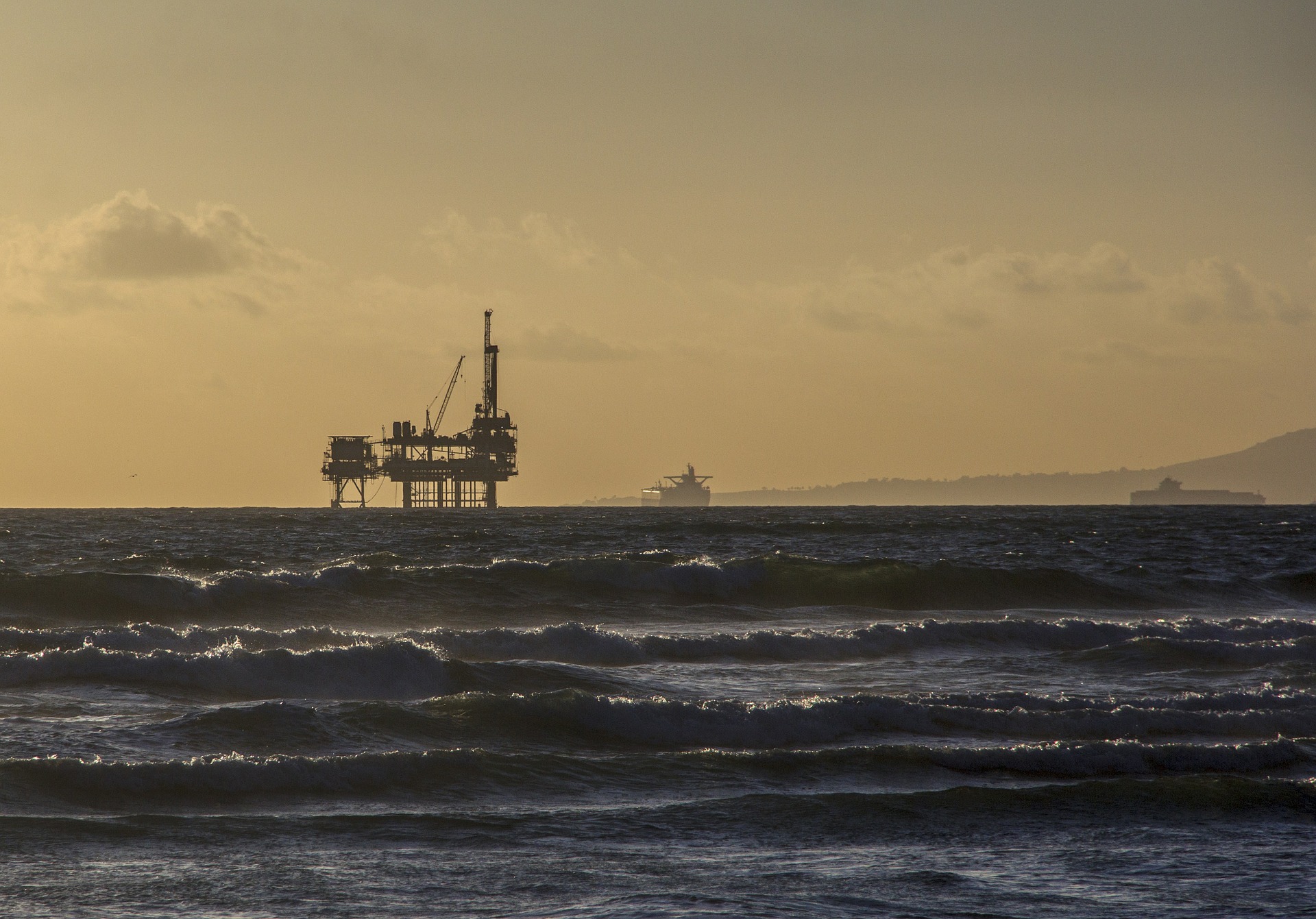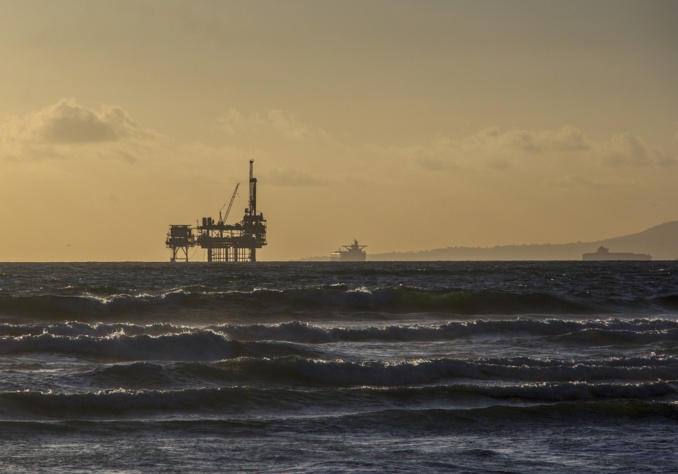According to the Washington Post “Fifty years of rapid population growth in the Middle East is coming to an end. The Middle East is experiencing the same "demographic transition" to slow population growth that other areas have gone through.” The demographic transition is a process which all countries have either undergone, or will undergo at some point in time. The prior state is characterized by high fertility and high mortality. The post-transitional state also amounts to the same weak and regular increase, but on the basis of low fertility and low mortality. The transitional phase is primed by a sharp fall in mortality, followed by the same decrease in fertility. Because the two trends drop one after the other, and not simultaneously, it causes a sharp one-off increase in the population. While the Western world started transitioning in the early part of the 20th century, the Middle-East is only finishing now. So a large extra portion of waste-producers has just appeared. This adds to the sister problem: the growing industrialization.
Not all countries in the Middle-East have chosen to diversify their economy out of the oil industry. Qatar has not deemed necessary to do so, given their population of under a million. But the oil industry itself is constantly growing, at the pace of new oil field discoveries. And many countries have chosen to diversify, with the perspective of oil and gas fields tapping out.
This double shift has caused an increase in waste, both industrial and domestic. The riddle takes an extra-twist considering that part of diversification undertaken aims at developing the tourist industry, namely in Oman. Such developments can be hampered by poor waste management, as tourists tend to frown upon trash-littered landscapes and beaches.
In order to quell this flow of waste, a large-scale upgrade of the waste treatment facilities is necessary. But it will need to fit in snugly in the region, which is already struggling with barely enough power and an arid environment. Traditional waste management methods (usually incineration) just won’t do for such large amounts of refuse in such conditions. Whichever solutions are retained, they will have to be top-notch. Western companies are therefore positioning themselves to place what they have best in shop.
CNIM has swooped in as a solution-provider for specific environments and their domestic waste-management challenges, and seems to be in good position to fill the landscape with its high-tech eco-friendly machinery. The engineering firm struck gold by acquiring the daughter company LAB, S.A, specialized in flue gas treatment, enabling it to treat smoke from its facilities and releasing clean air into the atmosphere. By having particularly “clean” waste-management technologies, it is able to manage waste very close to where it is produced, which is to say within the urban areas, providing its networks with over-average efficiency. LAB S.A. has fitted its clean-smoke devices, which it has protected with over 50 patents, all over Western Europe, Americas and Asia. In its latest feat, CNIM and its subsidiary LAB SA provided the city of Baku, in Azerbaijan, a complete waste to energy solution, able to engulf over 60 tons of waste per hour, render power in exchange and filter its polluting particles.
Shell bore that in mind with its latest gas-processing plant, Pearl GTL, which has been designed in order to meet zero-waste standards. National governments have become aware of the environmental situation and are therefore requesting industries to limit the additional burden on the waste situation. The latest gas facility was therefore fitted with all kinds of additional devices, at great expense, to ensure that the ecological situation did not further degrade. One of the standards it was held to, for instance, was the Zero Liquid Discharge threshold. The arid environment makes for extreme water scarcity, which means that the slightest amount of liquid pollution – and a plant the size of Pearl GTL could, if improperly designed, generate large amounts – would cause comparatively great environmental damage. Every single aspect of the liquid waste circuit, from constant descaling to cleansed vapors, is therefore strictly monitored and reinforced.
These industrial endeavors don’t pop out of nowhere: they are business consequences of the political engagements and commitments by national leaders in the area. In 2014, Ali Al Naimi, the Saudi Oil minister, stated the outstanding objective of almost a million tons fewer per year in CO2 production. To that effect, he entrusted KACARE and Saudi Aramco with the task of development new non-fossil energy systems.
The neighboring United Arab Emirates have undertaken championship of the environmental cause. Chief officer Al Huraimel took his position, claiming “Since its founding, Bee’ah has adopted a truly collaborative approach to resolving future energy crises and advancing its journey towards achieving zero-waste to landfill in Sharjah. This visit proved to be immensely successful – it opened new doors for joint ventures and allowed the delegates to delve deep into Bee’ah’s multi-phased waste management strategy. More importantly, it helped us to further cement our shared vision for a sustainable future.” Given how closely-knit the entire area is, political competition is fierce, and all countries keep angling to get some light shed onto them, hence the large public focus which has been given to the Bee’ah. In addition, the UAE has launched the great Masdar city project, a newly-engineered town designed to be the most ecologically advanced urban area in the world.
With the recent demographic, industrial and political changes in the region, Oman is discovering what challenge lies ahead, if only through the efforts its neighbors are deploying to regulate waste management efficiently. Keeping the kingdom in shape will not be a breeze, but there are several lights at the end of the tunnel. First of all, solutions do exist, in the West. Second, Oman has more than the means necessary to acquire state-of-the-art technology. Finally, the general awareness-raising in the entire Middle-East are means that skills will multiply. A booming business is usually quickly followed by universities setting up college degrees in that given area. For the moment, the Middle-East must rely on Western technology to get things started. But that might change, maybe in a decade or two.
Not all countries in the Middle-East have chosen to diversify their economy out of the oil industry. Qatar has not deemed necessary to do so, given their population of under a million. But the oil industry itself is constantly growing, at the pace of new oil field discoveries. And many countries have chosen to diversify, with the perspective of oil and gas fields tapping out.
This double shift has caused an increase in waste, both industrial and domestic. The riddle takes an extra-twist considering that part of diversification undertaken aims at developing the tourist industry, namely in Oman. Such developments can be hampered by poor waste management, as tourists tend to frown upon trash-littered landscapes and beaches.
In order to quell this flow of waste, a large-scale upgrade of the waste treatment facilities is necessary. But it will need to fit in snugly in the region, which is already struggling with barely enough power and an arid environment. Traditional waste management methods (usually incineration) just won’t do for such large amounts of refuse in such conditions. Whichever solutions are retained, they will have to be top-notch. Western companies are therefore positioning themselves to place what they have best in shop.
CNIM has swooped in as a solution-provider for specific environments and their domestic waste-management challenges, and seems to be in good position to fill the landscape with its high-tech eco-friendly machinery. The engineering firm struck gold by acquiring the daughter company LAB, S.A, specialized in flue gas treatment, enabling it to treat smoke from its facilities and releasing clean air into the atmosphere. By having particularly “clean” waste-management technologies, it is able to manage waste very close to where it is produced, which is to say within the urban areas, providing its networks with over-average efficiency. LAB S.A. has fitted its clean-smoke devices, which it has protected with over 50 patents, all over Western Europe, Americas and Asia. In its latest feat, CNIM and its subsidiary LAB SA provided the city of Baku, in Azerbaijan, a complete waste to energy solution, able to engulf over 60 tons of waste per hour, render power in exchange and filter its polluting particles.
Shell bore that in mind with its latest gas-processing plant, Pearl GTL, which has been designed in order to meet zero-waste standards. National governments have become aware of the environmental situation and are therefore requesting industries to limit the additional burden on the waste situation. The latest gas facility was therefore fitted with all kinds of additional devices, at great expense, to ensure that the ecological situation did not further degrade. One of the standards it was held to, for instance, was the Zero Liquid Discharge threshold. The arid environment makes for extreme water scarcity, which means that the slightest amount of liquid pollution – and a plant the size of Pearl GTL could, if improperly designed, generate large amounts – would cause comparatively great environmental damage. Every single aspect of the liquid waste circuit, from constant descaling to cleansed vapors, is therefore strictly monitored and reinforced.
These industrial endeavors don’t pop out of nowhere: they are business consequences of the political engagements and commitments by national leaders in the area. In 2014, Ali Al Naimi, the Saudi Oil minister, stated the outstanding objective of almost a million tons fewer per year in CO2 production. To that effect, he entrusted KACARE and Saudi Aramco with the task of development new non-fossil energy systems.
The neighboring United Arab Emirates have undertaken championship of the environmental cause. Chief officer Al Huraimel took his position, claiming “Since its founding, Bee’ah has adopted a truly collaborative approach to resolving future energy crises and advancing its journey towards achieving zero-waste to landfill in Sharjah. This visit proved to be immensely successful – it opened new doors for joint ventures and allowed the delegates to delve deep into Bee’ah’s multi-phased waste management strategy. More importantly, it helped us to further cement our shared vision for a sustainable future.” Given how closely-knit the entire area is, political competition is fierce, and all countries keep angling to get some light shed onto them, hence the large public focus which has been given to the Bee’ah. In addition, the UAE has launched the great Masdar city project, a newly-engineered town designed to be the most ecologically advanced urban area in the world.
With the recent demographic, industrial and political changes in the region, Oman is discovering what challenge lies ahead, if only through the efforts its neighbors are deploying to regulate waste management efficiently. Keeping the kingdom in shape will not be a breeze, but there are several lights at the end of the tunnel. First of all, solutions do exist, in the West. Second, Oman has more than the means necessary to acquire state-of-the-art technology. Finally, the general awareness-raising in the entire Middle-East are means that skills will multiply. A booming business is usually quickly followed by universities setting up college degrees in that given area. For the moment, the Middle-East must rely on Western technology to get things started. But that might change, maybe in a decade or two.



















